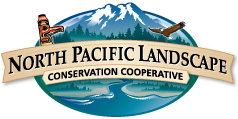The Importance of Traditional Ecological Knowledge in Adaptation Planning
Meeting Date: 3/23/2016
- 3/23/2016
Location: Webinar
Website: Website
Join The National Adaptation Forum March 23, 2016, 1PM EST/ 10AM PST for the quarterly National Adaptation Forum Webinar to learn about the importance of Traditional Ecological Knowledge (TEK) in climate adaptation planning.
TEK is knowledge handed down through generations through traditional stories and beliefs, including the relationship with the natural environment. This webinar will focus on the importance and role of TEK in adaptation planning at local, regional, and national level.
Presenters
Margaret Hiza Redsteer, US Geological Survey Dr. Margaret Hiza Redsteer is a research scientist at the USGS Flagstaff Science Center where she is leads a research team that examines landscape, ecosystem change and land use history, to provide a foundation for evaluating natural hazards for land use planning. Her research includes a unique combination of traditional/local knowledge and conventional scientific investigations to document current impacts from climate change and drought. Margaret is the recipient of the 2013 SAIGE (Society of American Indian Government Employees) Leadership Award. She is a lead author on the IPCC (Intergovernmental Panel on Climate Change) working Group II Fifth Assessment Report chapter on Adaptation, Planning and Implementation as well as the Working Group II Technical Summary, and coordinating lead author for a chapter in the Southwest Technical Report for the National Climate Assessment on the impacts of climate change to tribes in the southwestern U.S. (AZ, NM, CA, CO, NV, UT). Recent publications include a coauthored paper on climate-related health risks to the Crow tribe, and drought case study of the Navajo Nation that contributed to the United Nations Global Assessment on Disaster Risk Reduction.
Preston Hardison, Policy analyst, Tulalip Natural Resources Preston works on policy issues from the local to international level. He has participated in negotiations related to traditional at the Convention on Biological Diversity since 1996, the World Intellectual Property Organization since 2000, and the Intergovernmental Panel on Biodiversity and Ecosystem Services since 2012. At Tulalip, he works on climate change adaptation with a focus on traditional knowledge and research ethics and protocols.He is helping to organize a regional and national tribal phenology network, and starting a phenological observation project at Tulalip, with linkages to a tribal college network and involving youth, elders and community members. He has contributed to the formation of a 17 member tribal group that has developed ethical guidelines for the use of traditional knowledge in adaptation.
Kyle Powys Whyte, Timnick Chair in the Humanities, Michigan State University Kyle is Associate Professor of Philosophy and Community Sustainability, a faculty member of the Environmental Philosophy & Ethics graduate concentration and a faculty affiliate of the American Indian Studies and Environmental Science & Policy programs. His primary research addresses moral and political issues concerning climate policy and Indigenous peoples and the ethics of cooperative relationships between Indigenous peoples and climate science organizations. He is an enrolled member of the Citizen Potawatomi Nation. His articles have appeared in a range of journals, from Climatic Change to Hypatia. He is active in a number of organizations working at the nexus of Indigenous peoples and climate change, including the Climate and Traditional Knowledges Workgroup, College of Menominee Nation Sustainable Development Institute and Rising Voices: Collaborative Science for Climate Solutions.
